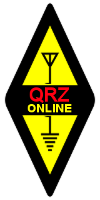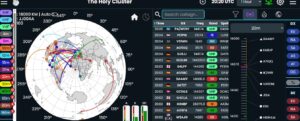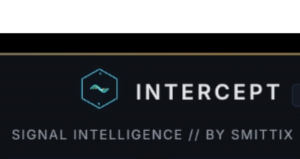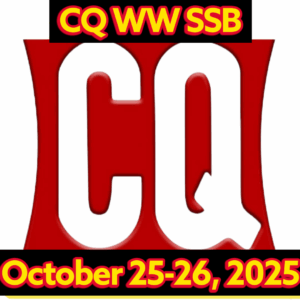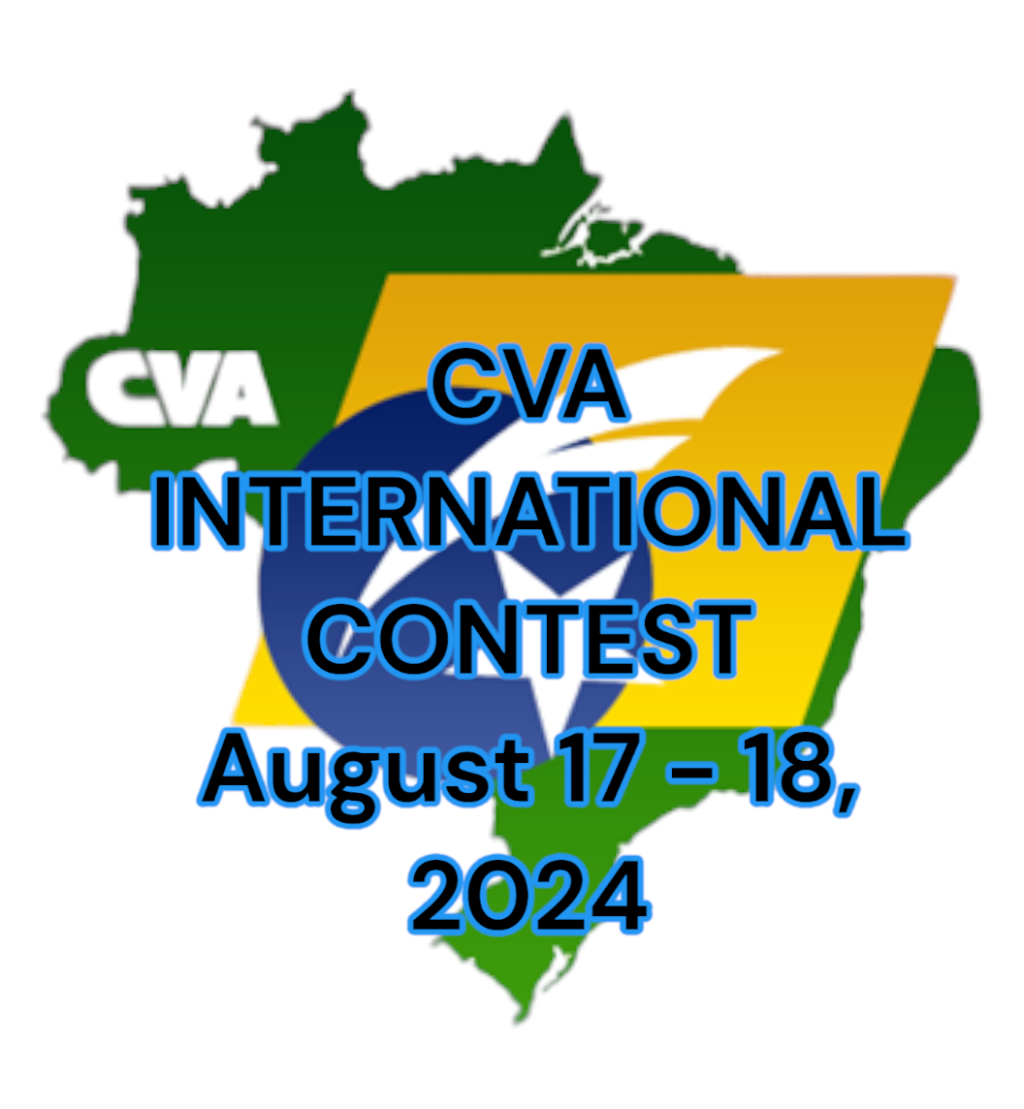
GREEN and YELLOW International HF Contest
CVA DX HF CONTEST
CW
2024
Historic:
The Green and Yellow DX Contest (in Portuguese CVA DX HF Contest) is one of the Brazilian’s most important amateur radio events, now in its 65th edition (2024), which reflects its long-standing tradition and proficiency demonstrated over the years.
The CVA DX Contest always takes place on the third full weekend of August for CW (Morse Code) and the fourth full weekend of August for SSB (Voice).
It’s part of the celebrations of the Brazilian Soldier’s Week by a Ministerial Notice on June 16, 1972. The CVA DX Contest aims to foster friendship among radio amateurs and amateur radio organizations – both civilian and military from around the world.
It also seeks to engage radio amateurs in the commemorative activities of Soldier’s Week, highlighting events related to August 25th and honoring the image of Duque de Caxias, the patron of the Brazilian Army.
Known as the Green and Yellow Contest or CVA DX Contest, it holds the title of the most traditional amateur radio contest in the Brazilian history.
Over more than 50 years, it has developed progressively, aligning with the formats of global contests.
The Brazilian Army, through the Brazilian Army School of Communications, promotes amateur radio practice and recognizes its importance in the country’s development.
Through over half a century of contests, it demonstrates Brazil’s affection and enthusiasm for the CVA DX Contest.
Since opening its doors to the world in 2011, the CVA DX Contest has rapidly gained international recognition, showing the importance of the amateur radio in Brazil to the global community.
1.0. DATES :
1.1. Third full weekend of August.
Start at 18 UTC on 17 Aug 2024 (CW);
Finish at 21 UTC on 18 Aug 2024 (CW).
1.2. Fourth full weekend of August.
Start at 18 UTC on 24 Aug 2024 (SSB);
Finish at 21 UTC on 25 Aug 2024 (SSB).
2. BANDS: 10m, 15m, 20m, 40m, 80m e 160m.
3. MODES: CW and SSB.
4. POWER:
4.1. Low Power: up to 100 Watts output;
4.2. High Power: up to 1500 Watts output.
4.3. QRP up to 5 Watts output (Exclusive for SOAB).
5. CATEGORIES:
5.1. SOSB – (Excluding QRP), 10m, 15m, 20m, 40m, 80m or 160m;
5.2. SOAB – (Excluding SODB);
5.3. SODB – Bands: 10m and 80m, (Low Power): up to 100 W output;
5.4. SOAB QRP – up to 5W output.
5.5.(RAEB) – Exclusive for Brazilians, classes A, B, and C, listed in the CRAEC.
5.6.(SOAB MIL) – (Except QRP), (Military personnel from all continents, active duty, reserve, 1st and 2nd class, and
retired)
5.7. MULTI-ONE – All bands (mandatory), and not exclusive to associations with their own call sign. Only one
transmit signal is allowed at any given time.
5.8. MULTI-ONE-OM (FI): Multi-operator, Single Transmitter, All Bands, Military Organizations (FI=Fixed
Installation) operated within Military Organizations of all countries. (remote operation is forbidden) Only one signal
is allowed at any given time.
5.9. MULTI-ONE-OM (PI): Multi-operator, Single Transmitter, All bands, Military Organizations (PI=Portable
Installation) operated within Military Organizations of all countries. (remote operation is forbidden) Only one signal
is allowed at any given time.
5.10. MULTI-TWO: Multi-operator – Up to two transmitted signals may be used at any time, and they must be on
two different bands. The log must indicate which station/signal made each QSO. The log must indicate which
transmitter made each QSO (column 81 of the CABRILLO QSO template for CVADX).
5.11. SOYL – (Except QRP). Classes (A, B, and C). Stations outside Brazil will compete among themselves.
6. OVERLAY: CW or SSB SUBCATEGORY.
6.1. ROOKIE: Single Operator with a license for three (3) years or less from the date of the competition.
6.2. TEEN: (Up to 17 years old) Single Operator.
7. EXCHANGE.
EXCHANGE
Military stations from all continents MIL
Stations outside of Brazil AF, AS, AN, EU, NA, OC, SA
STATIONS FROM BRAZIL
AC
(Acre)
AL
(Alagoas)
AP
(Amapá)
AM
(Amazonas)
BA
(Bahia)
CE
(Ceará)
DF
(Distrito Federal)
ES
(Espírito Santo)
GO
(Goiás)
MA
(Maranhão)
MT
(Mato Grosso)
MS
(Mato grosso do Sul)
MG
(Minas Gerais)
PA
(Pará)
PB
(Paraíba)
PR
(Paraná)
PE
(Pernambuco)
PI
(Piauí)
RJ
(Rio de Janeiro)
RN
(Rio Grande do Norte)
RS
(Rio Grande do Sul)
RO
(Rondônia)
RR
(Roraima)
SC
(Santa Catarina)
SP
(São Paulo)
SE
(Sergipe)
TO
(Tocantins)
7.1. Brazilian stations send (RS or RST) plus the state initials, for example: (59 SP or 599 SP).
7.2. Stations outside of Brazil send (RS or RST) plus the continent, for example: (59 EU or 599 EU).
7.3. Military stations from all continents send (RS or RST) plus “MIL”, for example (59 MIL or 599 MIL).
(EXCHANGE) MAP OF BRAZILIAN STATES
8. CQ: CQ CVA.
9. SCORING: All confirmed QSOs will be valid, with each station worked once per band.
9.1. Station scoring:
TYPES OF QSO SCORE
QSO between stations from the same country 2
QSO between stations from the same continent 3
QSO between stations from different continents 4
10.MULTIPLIERS :
Two types of multipliers will be used:
10.1. One multiplier per Brazilian state, worked once per band.
10.2. One multiplier per country worked once per band.
11. FINAL SCORE:
11.1. Total QSO points multiplied by the sum of total multipliers.
12. AWARDS:
12.1. SSB – 1st place for Brazilian stations
12.2. CW – 1st place for Brazilian stations
12.3. Stations outside of Brazil highest score per category: 1st place (SSB and CW)
13. PLAQUES AND SPONSORS:
13.1. Any participant can download the electronic certificate from the website: www.cvadx.org. The maximum
scores in each category in Brazil and outside, may receive sponsored plaques mainly by the official organizer,
which is the Amateur Radio Club of the Brazilian Army Communications School (CRAEC) or by
Radioamateur Clubs, Groups… It is also expected that there may be special prizes (plaques) awarded by these
same sponsors.
13.2. Only the amateur radio operator who completes a minimum of 30 QSOs will be entitled to receive a plaque.
13.3. The address listed in the Cabrillo log will be used for plaque shipment.
13.4. In exceptional cases, if there is no plaque sponsor in a category, the winner themselves may sponsor it.
13.5. To sponsor a CVA DX plaque, visit: www.cvadx.org.
14. PENALTIES:
14.1. Incorrect call sign logging: The station that logged incorrectly will lose this contact with no additional penalty.
14.2. Incorrect exchange logging: The station that logged incorrectly will lose this contact with no additional
penalty.
14.3. QTR difference between logs, over 5 minutes: Both stations will lose this QSO with no additional penalty.
15. TERMS AND DEFINITIONS:
15.1. All transmitters, receivers, amplifiers, and antennas of the station must be physically located within a circle
with a radius of 500 meters, hereinafter referred to as the “station location.” All antennas must be physically
connected to the transmitters and receivers. The use of any equipment outside the “station location” is considered
unsportsmanlike conduct, and violation of this rule may result in disqualification of the participant.
15.2. Any station classified as Single Operator or Multi-Operator (except Military Organization stations), which
complies with item 15.1, may be operated remotely via a network connection. A remotely operated station must
comply with the station’s license limits, and remote receivers and transmitters outside the “station location” are not
allowed.
15.3. Violation of the rules of this regulation, the communication legislation of your country, unsportsmanlike or
unethical behavior, not listed in this regulation, may be evaluated by the CVADX Committee and may lead to the
competitor being disqualified or reclassified as checklog.
16. ARBITRATION:
16.1. The CVA DX HF Contest Committee is responsible for reviewing and arbitrating any complaints or issues in
the competition. Participants are expected to comply with amateur radio rules and best practices. Violation of
competition rules, current regulations, or unsportsmanlike conduct may result in actions by this Committee.
17. RESOURCES/COMPLAINTS:
17.1. Complaints and appeals regarding unsportsmanlike conduct under this regulation can be sent to the CVADX
Arbitration Committee (comite@cvadx.org) at any time and up to 72 hours after the provisional results are
announced, followed by evidences reasoning sufficient for verification and judgment.
17.2. The CVADX Arbitration Committee, ultimately responsible for verifying and adjudicating any appeals and/or
complaints, will hear from the parties involved and make a decision. Their decisions will be final, with no further
appeals permitted.
17.3. Failure to comply with the determinations or issues within the stipulated period, issued by the Arbitration
Committee based on the complaint received, essential for the defense of the accused and their analysis, will result
in a sentence “in absentia”, and the complaints will be considered true.
17.4. The Amateur Radio Club of the Brazilian Army Communication School (CRAEC), responsible for conducting
the CVA DX HF Contest, is a private legal entity and is not subject to the norms and procedures that govern the
conduct of public institutions, civilian and military governmental bodies. The CRAEC maintains a supportive
relationship with the Communication School within the possibilities of that military organization, without any official
or organizational affiliation.
18. DECLARATION:
18.1. By submitting your participation log in the CVA DX HF CONTEST, you agree that:
18.2. You have read and understood the competition rules and agree to comply with them;
18.3. You have operated in accordance with all rules and regulations regarding amateur radio in your country;
18.4. Your log may be made public;
18.5. You unconditionally accept that disqualifications and other decisions of the Arbitration Committee are official,
sovereign and final, with no appeal available. If the participant does not want or cannot agree with the entirety of
the previous statement, they should not submit the registration or should only submit it in the form of a Checklog,
which may or may not be accepted by the organization;
18.6. All actions and decisions of the CVADX Contest Arbitration Committee are official and finalized.
19. LOGS AND RESULTS:
19.1. Original or corrected logs will only be accepted via www.cvadx.org – until 11:59 pm on the 7th day after the
contest. No logs will be accepted by other means or after this date..
19.2. Logs received in violation of these regulations or with errors that prevent proper processing are the sole
responsibility of the competitor and will be automatically be reclassified as Checklogs.
19.3. The list of received logs will be published at www.cvadx.org . Publishing your call sign confirms that your
registration was received.
19.4. To validate your club’s score, the club name can be selected when submitting the log (end of the second log
verification page), which includes all clubs listed on www.cvadx.org (if necessary, request registration of your club).
19.5. After the provisional results are announced, requests for log corrections that could change the classification
of the competitor or club will not be accepted, unless it is proven that there was an error by the Scoring Committee.
19.6. The provisional results will be published by the 20th day after the competition, and the official results will be
published by the 30th day after the competition on the website www.cvadx.org .
19.7. The recommended software for logging is N1MM, https://n1mm.hamdocs.com , but competitors can use any
software they prefer, as long as they produce the log in Cabrillo 3.0 format.
19.8. When operating outside your QTH, we recommend using “/” (forward slash), for example: PS7DX/PY2. We
receive logs typed with “\” (backslash) from both the station operator outside the QTH and the station maintaining
the QSO. If the configuration is not the same, the QSO will not be validated in the score.
GOOD LUCK IN THE CONTEST!
Source: https://cvadx.org/wp-content/uploads/2024/06/RULES-65o-CVA-DX-HF-English-Version.pdf
